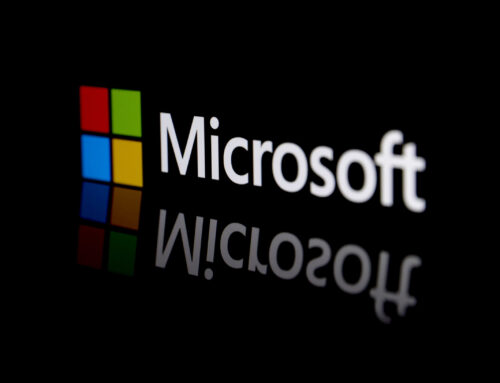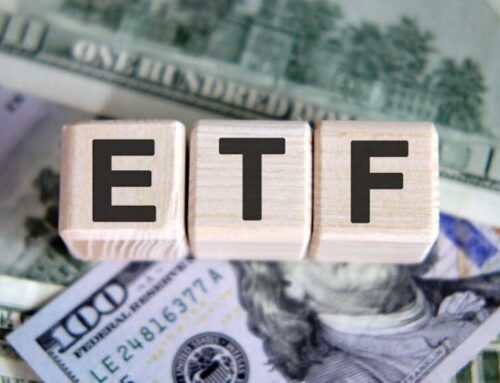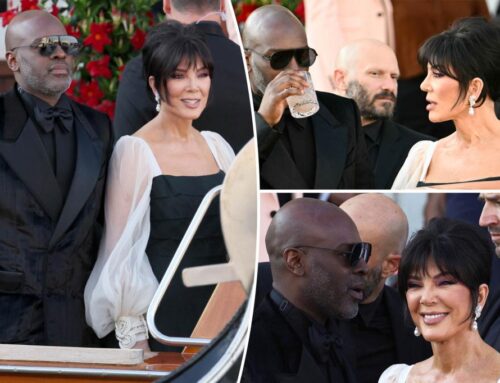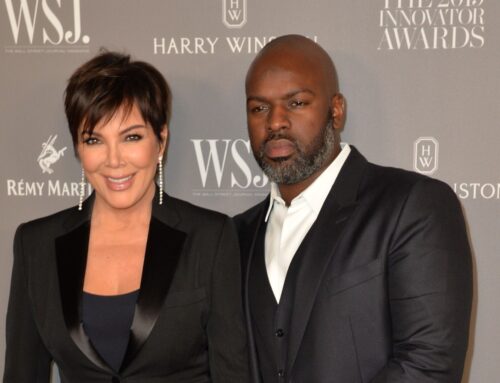Zuckerberg conceded there would be more ‘bad stuff’ on his sites. Here’s the latest.
January 7, 2025
Live Updates: Meta to End Fact-Checking Program in Shift Ahead of Trump Term
The social networking giant will stop using third-party fact checkers on Facebook, Threads and Instagram and instead rely on users to add notes to posts. It is likely to please President-elect Trump and his allies.

Meta on Tuesday announced changes to its content moderation practices that would effectively end a fact-checking program instituted to curtail the spread of misinformation across its social media apps. Instead of using news organizations and other third-party groups, Meta, which owns Facebook, Instagram and Threads, will rely on users to add notes to posts that may contain false or misleading information.
The reversal of the years-old policy is a stark sign of how the company is repositioning itself for the Trump presidency in the weeks before it begins. Meta described the changes with the language of a mea culpa: Joel Kaplan, Meta’s newly installed global policy chief, said in a statement that the company wanted to “undo the mission creep that has made our rules too restrictive and too prone to over-enforcement.”
Meta’s chief executive, Mark Zuckerberg, said in a video that the new protocol, which will begin in the United States in the coming months, is similar to the one used by X, called Community Notes.
“It’s time to get back to our roots around free expression,” Mr. Zuckerberg said. The company’s current fact-checking system, he added, had “reached a point where it’s just too many mistakes and too much censorship.”
Mr. Zuckerberg conceded that there would be more “bad stuff” on the platform as a result of the decision. “The reality is that this is a trade-off,” he said. “It means that we’re going to catch less bad stuff, but we’ll also reduce the number of innocent people’s posts and accounts that we accidentally take down.”
Meta executives recently gave a heads-up to Trump officials about the change in policy, according to a person with knowledge of the conversations who spoke on condition of anonymity. The fact-checking announcement coincided with an appearance by Joel Kaplan, Meta’s newly installed global policy chief, on “Fox & Friends,” a favorite show of President-elect Donald J. Trump. Mr. Kaplan told the hosts of the morning show popular with conservatives that there was “too much political bias” in the fact-checking program.
Here’s what to know:
-
Currying favor: Ever since Mr. Trump’s victory in November, few big companies have worked as overtly to curry favor with the president-elect. In a series of announcements during the presidential transition period, Meta has sharply shifted its strategy in response to what Mr. Zuckerberg called a “cultural tipping point” marked by the election.
-
Inspired by X: Mr. Zuckerberg seems to be taking a page from Mr. Trump’s favorite tech mogul, Elon Musk. Mr. Musk has relied on Community Notes to flag misleading posts on X. Since taking over the social network, Mr. Musk, a major Trump donor, has increasingly positioned X as the platform behind the new Trump presidency.
-
Conservatives cheer: Meta’s move on Tuesday morning elated conservative allies of Mr. Trump, many of whom have disliked Meta’s practice of adding disclaimers or warnings to questionable or false posts. Mr. Trump has long railed against Mr. Zuckerberg, claiming the fact-checking feature treated posts by conservative users unfairly.
-
Eased restrictions: Among the changes announced on Tuesday are the removal of restrictions on topics like immigration and gender identity that Mr. Zuckerberg said were “out of touch with mainstream discourse.” The company’s trust and safety and content moderation teams will be moved away from California, with the U.S. content review shifting to Texas, in a move that would “help remove the concern that biased employees are overly censoring content,” Mr. Zuckerberg added.
Members of Congress are starting to react to Meta’s announcement. Senator Rand Paul, a Republican from Kentucky, said in a post on X this morning that the company “finally admits to censoring speech,” calling the move to end its fact-checking program “a huge win for free speech.”
The Oversight Board, an independent organization funded by Meta to adjudicate content moderation cases, welcomed the announcement, saying Meta’s fact-checking methods have been criticized and perceived as politically biased. It said in a statement that the board “looks forward to engaging with Meta to ensure the development of a scalable solution that fosters trust, protects free expression and amplifies user voice on its platforms.”
Advertisement
Meta’s decision could set up a conflict with regulators in Europe, where there has been a sustained effort to get social media platforms to do more to combat disinformation and harmful content. Meta is already facing multiple E.U. investigations, including one for failure to address disinformation and deceptive advertising. Under a law called the Digital Services Act intended to force companies to police their platforms more aggressively, Meta could face fines of up to 6 percent of global revenue.
This was an announcement focused on one person above all others. Zuckerberg, wearing one of his now trademark chain necklaces, used language in his video that seemed targeted directly at Trump. He criticized the “legacy media” and said he would work with the incoming president to protect American companies from speech restrictions pushed by foreign governments. And it was announced on Fox News.
Taking a step back here, Zuckerberg’s decision fits in with the broader political repositioning among Silicon Valley leadership over the last two months. Tech companies and billionaires are reacting to Trump’s 2024 win far differently than they did in 2016. Few companies have been as aggressive — or unsubtle — as Meta.
Zuckerberg isn’t only responding to what happened in November. As Mike Isaac and I reported this fall, the tech billionaire genuinely was undergoing some personal political transformation even before Trump won, feeling regretful about some of his prior political and philanthropic work.
Advertisement
Mark Zuckerberg said in a Facebook post Monday that Meta had added Dana White, the chief executive of Ultimate Fighting Championship, and two other executives to its board.
Meta is adding Mr. White, a longtime friend of President-elect Donald J. Trump, to the social media company’s leadership amid a series of moves to strengthen its ties to the incoming administration. Last week, the company shook up the top of its policy team, appointing a longtime executive known for his Republican ties as head of global policy. Meta has also donated $1 million to Mr. Trump’s inaugural fund.
In recent years, Mr. White and Mr. Zuckerberg, the Meta chief executive, have bonded over their passion for professional fighting, including mixed martial arts, which Mr. Zuckerberg took up in 2022.
“Dana is the President and CEO of UFC, and he has built it into one of the most valuable, fastest growing, and most popular sports enterprises in the world,” Mr. Zuckerberg said in his post. “I’ve admired him as an entrepreneur and his ability to build such a beloved brand.”
In 2023, Mr. White attempted to broker a cage match between Mr. Zuckerberg and Elon Musk, the billionaire owner of X, Tesla and SpaceX. Mr. Musk, who has become a close ally of Mr. Trump, eventually backed out of the battle, citing an old injury. He claimed Mr. Zuckerberg was at fault for not making himself available to fight later on.
Meta, which owns Facebook, Instagram and WhatsApp, created three new board seats for the appointments, bringing the total number to 13. Mr. Zuckerberg said the company had also added John Elkann, the chief executive of Exor, a European-based holding company that controls Jeep and Ferrari, and Charlie Songhurst, a tech investor who previously worked at Microsoft and has recently advised Meta on artificial intelligence projects.
“We have massive opportunities ahead in A.I., wearables, and the future of social media, and our board will help us achieve our vision,” Mr. Zuckerberg wrote.
Meta in recent years has begun to manufacture wearable technology, like gaming headsets and sunglasses equipped with cameras. It is also competing in a global A.I. race, launching its own generative system with “open source” code so that it can be freely copied, modified and reused by anyone.
Meta has faced harsh Republican criticism of its content moderation on its social media platforms, which Mr. Trump and others argue amounts to censorship of conservative voices. Some of the people the president-elect has tapped to regulate the tech and other industries have promised to crack down as a result.
In recent weeks, Mr. Zuckerberg met with Mr. Trump at Mar-a-Lago, during which the tech executive congratulated the president-elect on winning the election.
It was only a little more than a decade ago that Mark Zuckerberg had few qualms about airing his politics.
Earnest and optimistic — perhaps naïvely so — he rushed onto the national stage to discuss issues he cared about: immigration, social justice, inequality, democracy in action. He penned columns in national newspapers espousing his views, spun up foundations and philanthropic efforts and hired hundreds of people to put his vast riches to work on his political goals.
That was Mark Zuckerberg in his 20s. Mark Zuckerberg in his 40s is a very different Mark Zuckerberg.
In conversations over the past few years with friends, colleagues and advisers, Mr. Zuckerberg has expressed cynicism about politics after years of bad experiences in Washington. He and others at the top of Meta, the parent company of Facebook, believed that both parties loathed technology and that trying to continue engaging with political causes would only draw further scrutiny to their company.
As recently as June at the Allen and Company conference — the “summer camp for billionaires” in Sun Valley, Idaho — Mr. Zuckerberg complained to multiple people about the blowback to Meta that came from the more politically touchy aspects of his philanthropic efforts. And he regretted hiring employees at his philanthropy who tried to push him further to the left on some causes.
In short — he was over it.
His preference, according to more than a dozen friends, advisers and executives familiar with his thinking, has been to wash his hands of it all.
In public, that means Mr. Zuckerberg is declining to engage with Washington except when necessary. In private, he has stopped supporting programs at his philanthropy that could be perceived as partisan, and he has tamped down employee activism at Meta, said these people, who spoke on condition of anonymity because they were not authorized to do so or did not want to jeopardize their relationships with Mr. Zuckerberg.
He has also spoken to former President Donald J. Trump in one-on-one telephone calls twice over the summer, these people said, a move that some have characterized as an attempt to repair a long-strained relationship between the two men.
“The political environment, I think I didn’t have much sophistication around, and I think I just fundamentally misdiagnosed the problem,” Mr. Zuckerberg said during a recent interview at a live podcast event in San Francisco.
Last month, Mr. Zuckerberg publicly expressed regret around some of his political activity in a letter to Congress. He said that in 2021, the Biden administration “pressured” Meta into censoring more Covid-19 content than Mr. Zuckerberg felt comfortable with. And he said he would not repeat the contributions he made in 2020 to support electoral infrastructure because the gifts made him appear not “neutral.”
Mr. Zuckerberg’s evolution has drawn comparatively little attention compared to that of tech titans like Elon Musk, who have publicly attached themselves to conservatives and Mr. Trump. But it is also reflective of a larger shift in Silicon Valley, where chief executives have grown frustrated with contentious social issues. Their response has largely been to back away from it.
“Mark and his peers are probably looking at the risks of political engagement and deciding neutrality is the safer choice until this election is over,” said Nu Wexler, a principal at the political consulting firm Four Corners Public Affairs and a former Facebook employee.
Privately, Mr. Zuckerberg now considers his personal politics to be more like libertarianism or “classical liberalism,” according to people who have spoken to him recently. That includes a hostility to regulation that restricts business, an embrace of free markets and globalism and an openness to social-justice reforms — but only if it stops short of what he considers far-left progressivism. And Mr. Zuckerberg and his wife, Dr. Priscilla Chan, have been privately aghast about what they see as a rise of antisemitism on college campuses, including at their alma mater, Harvard.
Mr. Zuckerberg’s and Dr. Chan’s representatives at Meta and the Chan Zuckerberg Initiative declined to comment.
It is a significant shift for an executive who in 2013 helped found and became the public face of the political advocacy organization Fwd.US, whose aim was to help create a path to citizenship for undocumented immigrants.
Two years later, taking inspiration from Bill Gates, Mr. Zuckerberg and Dr. Chan established the Chan Zuckerberg Initiative, a philanthropic organization that poured $436 million over five years into issues such as legalizing drugs and reducing incarceration.
In 2015, Mr. Zuckerberg and Dr. Chan wrote a letter to their newborn daughter, dreaming of an egalitarian world where they could “eliminate poverty and hunger,” “provide everyone with basic health care” and “nurture peaceful and understanding relationships between people of all nations.” He hired a former top Obama adviser, David Plouffe, to oversee the work.
But over the next few years, Facebook faced accusations that Russians had used it to stoke divisions among voters. Mr. Zuckerberg and his company became a political lightning rod, with Democrats and Republicans blasting Facebook and its sister service Instagram for allowing too much — or too little — political speech.
Beginning in 2019, Mr. Zuckerberg began to express bewilderment about the country’s changing politics, two people close to him said. And the scrutiny caused Mr. Zuckerberg to see his more overtly political work at C.Z.I. as relatively ineffective.
Mr. Zuckerberg and Dr. Chan were caught off guard by activism at their philanthropy, according to people close to them. After the protests over the police killing of George Floyd in 2020, a C.Z.I. employee asked Mr. Zuckerberg during a staff meeting to resign from Facebook or the initiative because of his unwillingness at the time to moderate comments from Mr. Trump.
The incident, and others like it, upset Mr. Zuckerberg, the people said, pushing him away from the foundation’s progressive political work. He came to view one of the three central divisions at the initiative — the Justice and Opportunity team — as a distraction from the organization’s overall work and a poor reflection of his bipartisan point-of-view, the people said.
In 2021, Mr. Zuckerberg and Dr. Chan decided to end the group’s internal political work and instead fund two bipartisan groups, including Fwd.us, working on those issues. Many of its 30 or so employees who focused on politics resigned, were reassigned or were sent to those two groups.
After the Supreme Court in 2022 overturned Roe v. Wade, some employees at the initiative wanted the organization to focus on protecting abortion access. But Dr. Chan, who runs C.Z.I. day-to-day, sent a memo to employees firmly refusing to do that. “We need to stay focused and clear on what we’re here to do. That means staying focused” on science, education and community work, she wrote, according to a portion of the memo reviewed by The Times. “We do not have any plans to expand our grant making to new areas.”
Today, Mr. Zuckerberg, one of the initiative’s two chief executives with Dr. Chan, is less involved than he was two or three years ago, an associate said.
Other incidents piled up. After the 2020 election, Mr. Zuckerberg and Dr. Chan were criticized for donating $400 million to the nonprofit Center for Tech and Civic Life to help promote safety at voting booths during pandemic lockdowns. Mr. Zuckerberg and Dr. Chan viewed their contributions as a nonpartisan effort, though advisers warned them that they would be criticized for taking sides.
The donations came to be known as “Zuckerbucks” in Republican circles. Conservatives, including Mr. Trump and Representative Jim Jordan of Ohio, a Republican who is chairman of the House Judiciary Committee, blasted Mr. Zuckerberg for what they said was an attempt to increase voter turnout in Democratic areas.
In private conversations with advisers and friends, Mr. Zuckerberg and Dr. Chan have voiced some regret about the contributions and how much they backfired.
The country should be throwing a parade for election officials and “they’ve been under attack” instead, said David Becker, who ran another of the Zuckerberg-backed 2020 programs, the Center for Election Innovation and Research. “I would understand if Mark Zuckerberg was frustrated at the manufactured controversy about this.”
Inside Meta, Mr. Zuckerberg and his executive team have clamped down on politics.
In late 2022, Lori Goler, Meta’s head of human resources, introduced a new internal policy called “community engagement expectations,” according to a copy of the memo reviewed by The Times. It forbade employees from raising in the workplace issues such as abortion, racial justice movements and wars. Andrew Bosworth, Meta’s chief technology officer, championed the policy and was supported by Mr. Zuckerberg, two people familiar with the matter said.
Instead of publicly engaging with Washington, Mr. Zuckerberg is repairing relationships with politicians behind the scenes. After the “Zuckerbucks” criticism, Mr. Zuckerberg hired Brian Baker, a prominent Republican strategist, to improve his positioning with right-wing media and Republican officials. In the lead-up to November’s election, Mr. Baker has emphasized to Mr. Trump and his top aides that Mr. Zuckerberg has no plans to make similar donations, a person familiar with the discussions said.
Mr. Zuckerberg has yet to forge a relationship with Vice President Kamala Harris. But over the summer, Mr. Zuckerberg had his first conversations with Mr. Trump since he left office, according to people familiar with the conversations.
During the Republican National Convention in Milwaukee, Mr. Trump thanked the billionaire in a phone call for publicly saying that he was “praying” for Mr. Trump after the recent assassination attempt, according to a person briefed on the call.
Just a few weeks later, they talked again.
After Meta erroneously took down images of the assassination attempt that were circulating across Meta, Mr. Zuckerberg called the former president directly and apologized for the mistake, according to two people familiar with the talk. Representatives for Mr. Trump and Mr. Zuckerberg have offered differing accounts of what happened on the call.
“Private discussions between President Trump and anyone else are just that — private,” said Steven Cheung, a Trump campaign spokesman.
Mr. Zuckerberg has not fooled himself into thinking that downplaying politics will solve all his personal frustrations or his company’s problems entirely. But he does think it is something that Meta can come back from — eventually.
“I think it’s going to take another 10 years or so for us to fully work through that cycle before our brand is back to the place that it could have been,” Mr. Zuckerberg said at the podcast event, “if I hadn’t messed up in the first place.”
Read by Mike Isaac
Sheera Frenkel contributed reporting from San Francisco.
Audio produced by Patricia Sulbarán.
Search
RECENT PRESS RELEASES
Related Post




